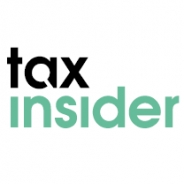
After recent Government announcements, you cannot fail to be aware that it is introducing changes to pension tax relief. But what are they, and will they affect you? Robert Fraser of Tax Insider looks at the changes.
Overview of Changes
In summary, the headline changes are:
- The Annual Allowance is reducing to £50,000 from April 2011, and will be fixed until at least 2015/16;
- Tax relief will be at the marginal rate (i.e., up to 50%);
- There will be an ability to carry forward 3 years’ unused allowance;
- The valuation factor for accrual in defined benefit schemes increased from 10:1 to 16:1, but inflationary increases will be ignored;
- The exemption from the Annual Allowance test in the year benefits are taken will be removed; and
- The Lifetime Allowance is reducing to £1.5 million from April 2012, but protection will be provided to those already between £1.5 million and £1.8 million.
Who will be Affected?
The following individuals are potentially affected by these changes:
- Those earning in excess of £130,000 who have been caught by the ‘anti-forestalling’ rules will be able to contribute at a higher rate than currently. The carry forward provision will allow them to make up for reduced contributions in the 2009/10 and 2010/11 tax years;
- Those currently paying in more than £50,000 pa, or planning to do so. They will be restricted;
- Those with pension arrangements close to £1.5 million; and
- Those planning to retire in 2011/12 and who were intending to make a large ’final year‘ pension payment.
What Can We Do?
There will be those who are in a position to make a large one-off pension contribution this tax year of up to £255,000, and who might now wish to do so before the axe falls. Whilst this may be good planning, there is a major potential trap to catch the unwary.
The issue is the ’Pension Input Period’ (PIP). Like company accounting periods, it is possible to have a PIP that is different to the tax year. These PIPs were introduced from 6 April 2006 as an administrative easement to the Pension Simplification Regime. It defaults to a 12 month period chosen by the scheme administrator and, for personal pensions, may be the date of the first contribution after 6 April 2006.
It is possible for the scheme administrator or, if the scheme permits (such as may be the case for personal pensions), the individual member to alter the PIP end date. The reason that this is critical is that it is the end date of the PIP which will determine the tax year in which contributions are tested against the annual allowance. Thus, some individuals are already caught by the new rules.
Example
If an individual started a personal pension on 7 April 2006, the Pension Input Period will fall in the new tax year and will thus be caught by the new lower Annual Allowance in respect of contributions made after 14 October 2010 (when the new rules were announced).
Practical Tip
Anyone thinking that they have until the end of this tax year to make contributions up to the £255,000 Annual Allowance needs to check that they are not already caught. If they are, there may be scope for addressing this, but professional advice would be necessary.
By Robert I Fraser



Please register or log in to add comments.
There are not comments added